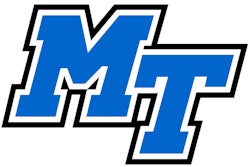Copyright 2018 The Deseret News Publishing Co.
Deseret Morning News (Salt Lake City)
SALT LAKE CITY — Utahns can rest assured that their tax dollars aren't needed to pay for the proposed $1.4 billion budget for Salt Lake City to host another Winter Games, according to a leader of the bid effort, Fraser Bullock.
"Here's where we have a massive disconnect," Bullock told the Deseret News and KSL editorial boards recently. "The investment is zero from state and local communities. Zero. In fact, they're going to get money at the end of this."
Just like for the 2002 Winter Games, he said if Salt Lake City is selected by the U.S. Olympic Committee to host a future Winter Games, the money to pick up the tab would come from selling sponsorships and TV rights as well as other revenues.
The only tax dollars would come from the federal government for security.
"This money comes in by hosting the Olympics. We spend it, and we're going to have some left over," promised Bullock, who served as chief operating officer for the 2002 Games.
The proposed budget is included in a hefty binder of information submitted earlier this month to the USOC as part of Salt Lake City's bid to be selected as America's choice to host a yet-to-be- determined Winter Games, in 2030 or 2034.
The USOC decision could come during a mid-December board meeting in San Francisco, although officials from the Colorado Springs-based organization have said the board still needs to commit to going after another Winter Games.
If there is USOC backing for a bid, Bullock said Thursday at an Olympic Exploratory Committee meeting that Salt Lake could have to be ready for the International Olympic Committee to name the host of the 2030 Winter Games next June.
That's because the IOC may choose to award both the 2026 and 2030 Winter Games at the same time, as the Switzerland-based organization did for two upcoming Summer Games, rather than wait until 2023 to name the 2030 host.
Bullock said a dual award would give backers of another Olympics in Utah just six months to put together an international bid that must include signed thousands of contracts for everything from competition venues to some 30,000 hotel rooms.
"It's just a ton of work," he told the community leaders and athletes gathered for an update on the bid process and would require money to be raised to cover at least a portion of the $10 million budgeted for an international bid.
But both Bullock and Salt Lake City Mayor Jackie Biskupski said it can be done.
"It will be intense for sure," the mayor said. "But doable."
The USOC's accelerated bid process launched in October is already well underway. Of the three cities invited by the USOC to bid — Salt Lake, Denver and Reno-Tahoe — only Salt Lake and Denver are still in the running after Reno-Tahoe dropped out.
Besides having to provide the USOC with detailed information about what a future Winter Games would look like, Salt Lake City and Denver also were visited by the organization's leaders for daylong tours of venue sites.
In addition, as part of the bid process, the USOC is conducting public opinion polls in both Utah and Colorado to gauge support among residents for hosting a Winter Games.
Biskupski said the poll could be underway as soon as next week.
For Salt Lake City, that meant an opportunity to show newly named USOC leaders, including CEO Sarah Hirshland, that the ski jumps, sliding track, speedskating oval and other 2002 facilities continue to be used for training and competition.
The tour also was a chance to showcase community backing for another Olympics, measured at 89 percent in a November 2017 poll done for the state's Olympic Exploratory Committee that recommended another bid earlier this year.
Gov. Gary Herbert, as well as business leaders and Olympians, turned out for a luncheon in the tower of the University of Utah's Rice- Eccles Stadium, organized just days before the USOC's Nov. 14 site visit.
The visit ended with a stop at a rare joint meeting of the Utah Legislature, where Hirshland noted everyone the USOC officials had met throughout the day made it clear they wanted another Winter Games.
"Every one of them has said to us, 'We're ready, we're willing, we're able. Let us prove it,' " she said to loud applause. "So, I will stand here and take only a minute of your time to say, 'You're piling on.' "
Bullock called the visit "a perfect day" and said he teared up when lawmakers gave Hirshland a standing ovation. "They gained a deep appreciation for the legacy, not just the facilities, but the people and the heart."
He said that "everything is on track. We've fulfilled everything they wanted us to do. I think we, in my opinion, hit it out of the park. They have tremendous confidence in us. ... We know how to do this."
In contrast, Denver has never hosted an Olympics. The city was selected by the IOC as the site of the 1976 Winter Games but had to withdraw after Colorado voters shot down a state bond to help cover the costs.
Even now, there is an effort underway to get a referendum on the Denver municipal ballot next year that would require voter approval for any spending related to hosting a future Winter Games.
Denver's submission to the USOC included the option of actually holding some Winter Games events in Salt Lake City rather than building, for example, a sliding track for bobsled, luge and skeleton events in Colorado.
Jeremy Story, a spokesman for the Denver bid effort, said the USOC was presented with multiple options "to be aligned with the IOC's Agenda 2020 and New Norm initiatives."
Those initiatives, developed by a group that included Bullock, are intended to control the cost of hosting an Olympics, such as by utilizing existing facilities even if they are located in another state or even country, or by building temporary venues.
Story said that one of Denver's proposals "is a Winter Games exclusively in Colorado, using existing facilities combined with a few temporary facilities, while several other options potentially could include partner cities such as Calgary, Lake Placid, Salt Lake City or Vancouver."
He said the IOC has identified "these approaches as viable and potentially desirable options, so we expect the USOC will give them careful consideration."
Bullock declined to comment on Denver as a competitor but said one of Salt Lake's strengths is what he termed a "one Games experience," especially for athletes housed together because their competition venues are nearby.
"If they can be in one village, up at the University of Utah, mingling with thousands of people from around the world ... that's the Olympic experience," he said. "As soon as you go to another state, it's a completely different experience."
Utah taxpayers did pick up the cost of building Olympics facilities for 2002, including the ski jumps and sliding track at the Utah Olympic Park near Park City, but their $59 million investment was repaid with interest after the Games.
Bullock said the proposed budget for a future Winter Games now includes $50 million to add to what was a $76 million endowment used to maintain those facilities that also came out of 2002 profits.
Not in the budget is repaying the $40 million that Utah legislative leaders have pledged to put into much-needed capital improvements at the Olympic facilities, such as a new roof for the speedskating oval in Kearns.
Bullock said that's because lawmakers have made it clear the money would be spent even without another Olympic bid. But he said if there's a bigger surplus after hosting another Games, that could fund future capital costs.
Also reflected in the budget, updated from what was presented to the Olympic Exploratory Committee before its decision to back another bid, are savings from 2002.
Not only does Salt Lake City not need to repay the state for building Olympic facilities, Bullock said organizers of a future Winter Games could save about 20 percent on labor expenses because by using existing plans, employees could be hired later.
He labeled the budget "austere," saying it amounts to $500 million less than the price tag for 2002 after adjusting for inflation. He said with the IOC trying to reinvent the Games as more affordable, "We say, 'Let us be the example.' "
Ed Hula, editor of "Around the Rings," an Atlanta-based online international Olympic news source, said backers of Salt Lake City's bid have a lot to feel good about when it comes to the USOC selection process.
"I think Salt Lake City has proven itself compared to Denver as a more adept, more ready-to-go Olympic host," Hula said, especially with the IOC's move away from places that need to build a lot of facilities.
"Salt Lake City has that going for them," the longtime Olympic journalist said. "There's just not much of an appetite among Olympic decision-makers to go to a place that needs a lot of work."
Hula also said he sees the sudden interest in choosing an American city to bid as a sign there's pressure from the IOC to be ready in case there are no good picks for the 2026 Winter Games when that selection is made next year.
In November, voters in Calgary, Canada, rejected bidding for 2026, leaving only Stockholm, Sweden, and Cortina D'Ampezzo and Milan in Italy, still in the running, although there is significant opposition to both of those bids.
Hula said the USOC's haste may mean there is a "larger influence guiding this, it seems. And that would be the IOC's wish that the U.S. be in position to do something about (2026) if everyone drops out."
He said a decision by the USOC in December would be "a pretty good signal they've got something going on that they haven't officially disclosed," calling Salt Lake City the country's "perennial winter bid candidate that's ready to go."
USOC officials, however, have said repeatedly there's no interest in 2026 because they want to ensure Los Angeles is successful in hosting the 2028 Summer Games. The California city has already locked up domestic sponsorships through then.
Supporters of bringing another Olympics to Utah have been careful to say they're looking at 2030 or beyond. Bullock had no comment Thursday when asked about being positioned for 2026 if an international bid is put together quickly.
He said only Sapporo, Japan, also has expressed interest at this point in 2030.
Biskupski, however, said even in preparing the USOC bid, "We were keeping in mind that it is possible we could be asked to do 2026. That is possible," along with a dual bid award by the IOC that could give Salt Lake the 2030 Winter Games.
"Planning for this potential to come to our doorstep, I think for all of us, we would prefer to be able to breathe and get this done in the normal amount of time," the mayor said. "But we've done a lot of preliminary work just in case."
Bullock said he'd like to see the IOC rotate the Winter Games between six cities in Europe, Asia and North America. His North American picks? Calgary, where he's from, and Vancouver in Canada, and, of course, Salt Lake City in the United States.
"I think it makes complete sense," he said of returning again and again to the same Winter Games cities that have invested in constructing and maintaining facilities, predicting that it "may happen at some point in the future."
Email: [email protected]
Twitter: DNewsPolitics
Read More of Today's AB Headlines
Subscribe to Our Daily E-Newsletter
Terms and Conditions Privacy Policy



































